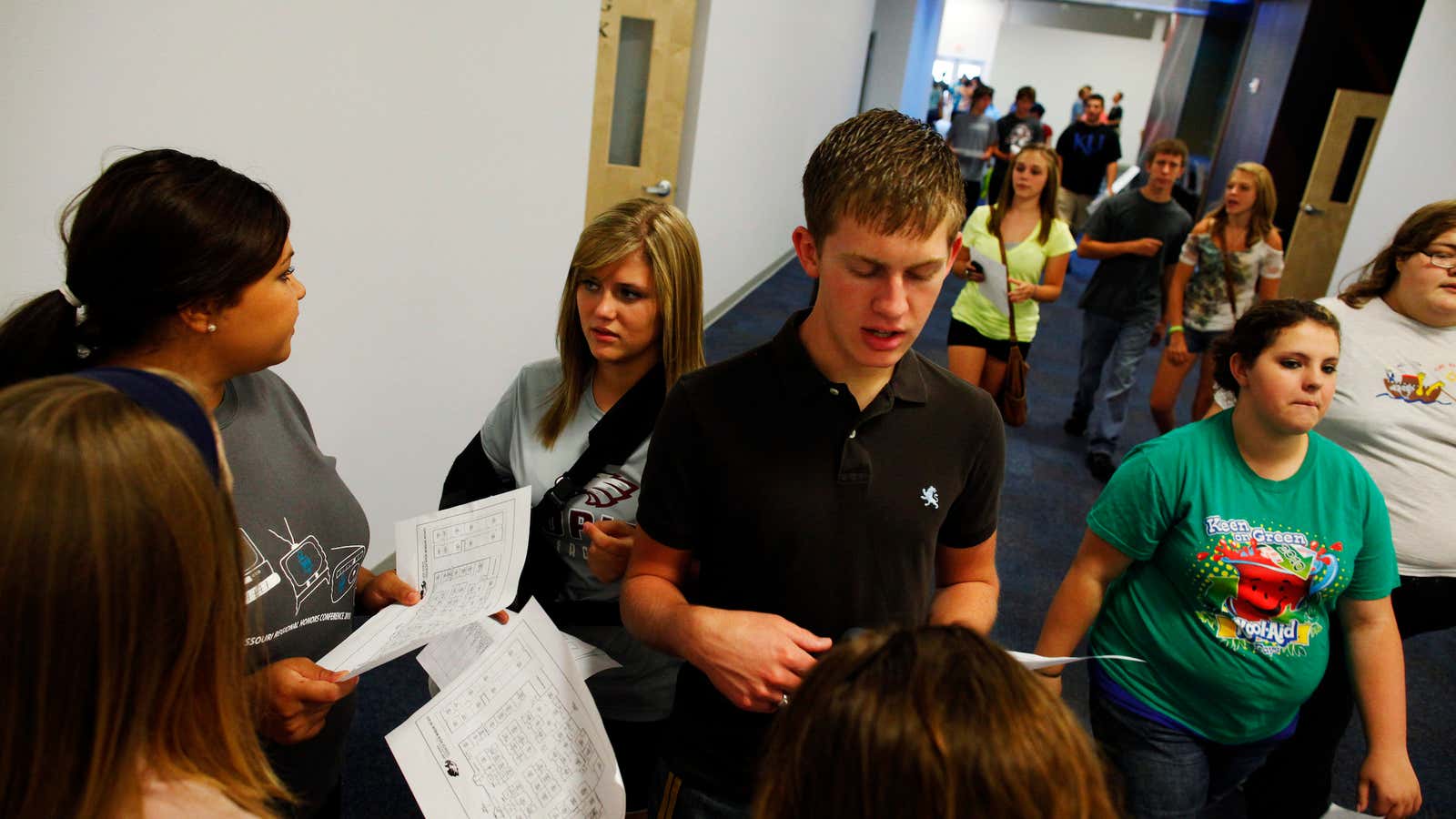Many parents go to great lengths to surround their children with the smartest peers possible, often relocating to a better school district or spending big bucks on private school. That strategy could do significant harm, new research found.
People at the very top of their class, in terms of ability, do extremely well in such a competitive landscape. But people a bit behind them in rank pay a penalty, even if they’re much brighter than those in their age group at other schools, according to the study (pdf) on American students from the Institute for the Study of Labor.
On average, in a group of 100 students, the top ranked student by ability was 1.3% less likely to drop out of high school than the 10th ranked student, 3.9% more likely to go to college, and 3.6% more likely to complete a four year degree.
When the authors controlled for other factors, like school quality and whether a student’s parents went to high school, they found the effect was smaller—a roughly 1% increase in college attendance/graduation rates for every 10% jump in rank. Still, that’s highly statistically significant, and arguably causal, the authors write. Bigger schools showed even larger effects.
Being around smart people is beneficial in lots of ways, with one study finding that highly intelligent peers can boost achievement (pdf) and learning. But it can also have a significant discouraging effect.
For this study, ability was measured using the Peabody Picture Vocabulary Test, a highly reliable test of basic cognitive ability. It did not factor in GPA or other testing scores. The rankings weren’t explicitly shared with the participants, but students tended to know where they stood.
The effects were strongest at the very top of the rankings, and basically nonexistent in the lower half.
“These results suggest that smart students who have a low rank because their peers are even smarter under-invest in their human capital; they choose not to go to college because of their low rank within their cohort,” the authors write.
Top ranked students were much more likely to believe they’re more intelligent than average, and that they were going to complete a college degree.
“This would hardly be the case if students had no idea about their relative ability,” the authors write.
At issue is that students tend to use how they stack up with their nearest peers as a measure of their absolute ability. For example, if they’re 10th in their class, they might conclude they’re mediocre and won’t get much out of college. High ranked students also tended to be the most confident. Additionally, teachers and family give more attention to the highest ability students.
These are obviously big considerations for parents. But it’s also important for policymakers, the authors argue, because talented students can get lost. The authors suggest giving low ranked students in high ability schools better information on how they compare to the rest of the world.
